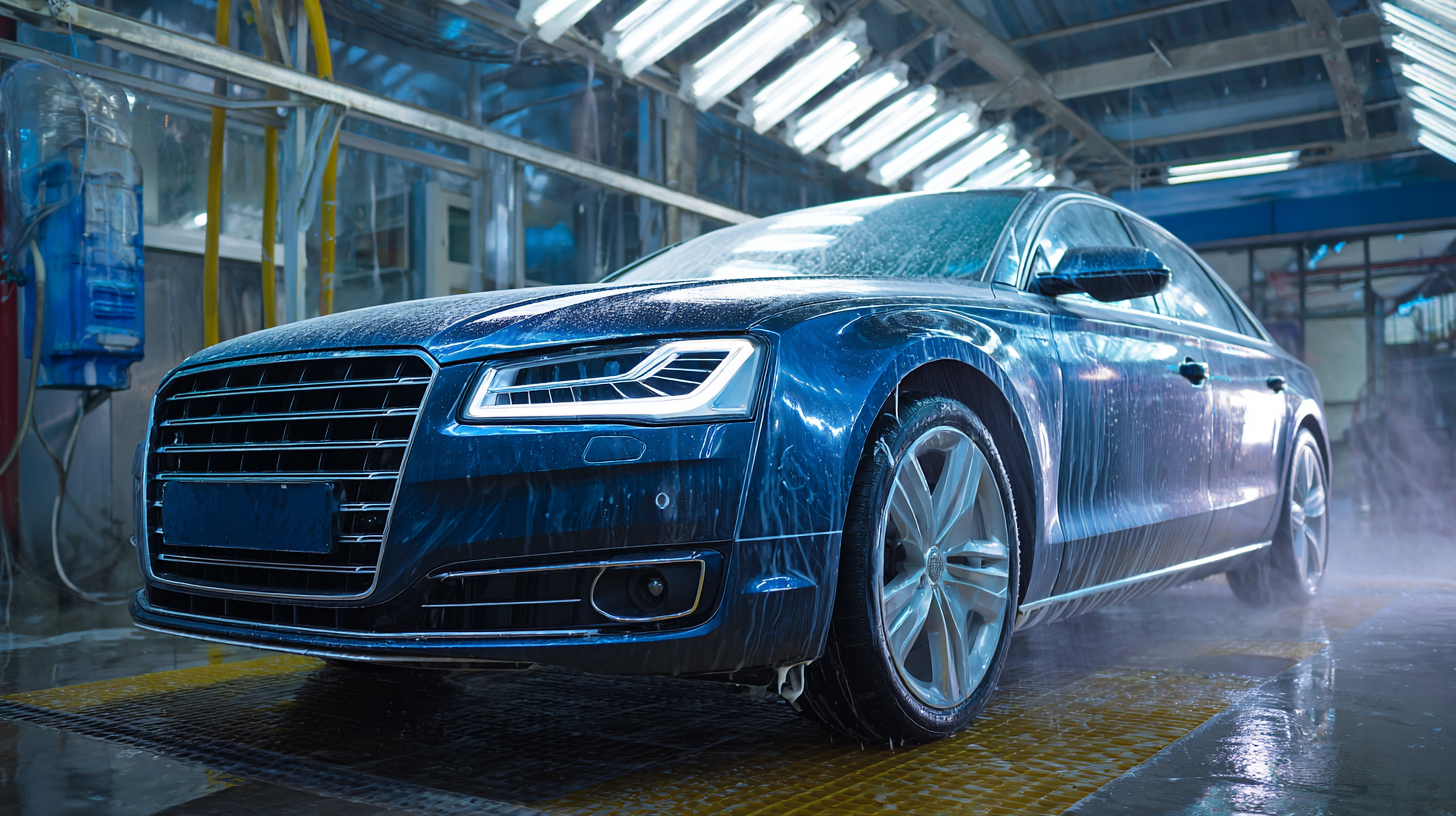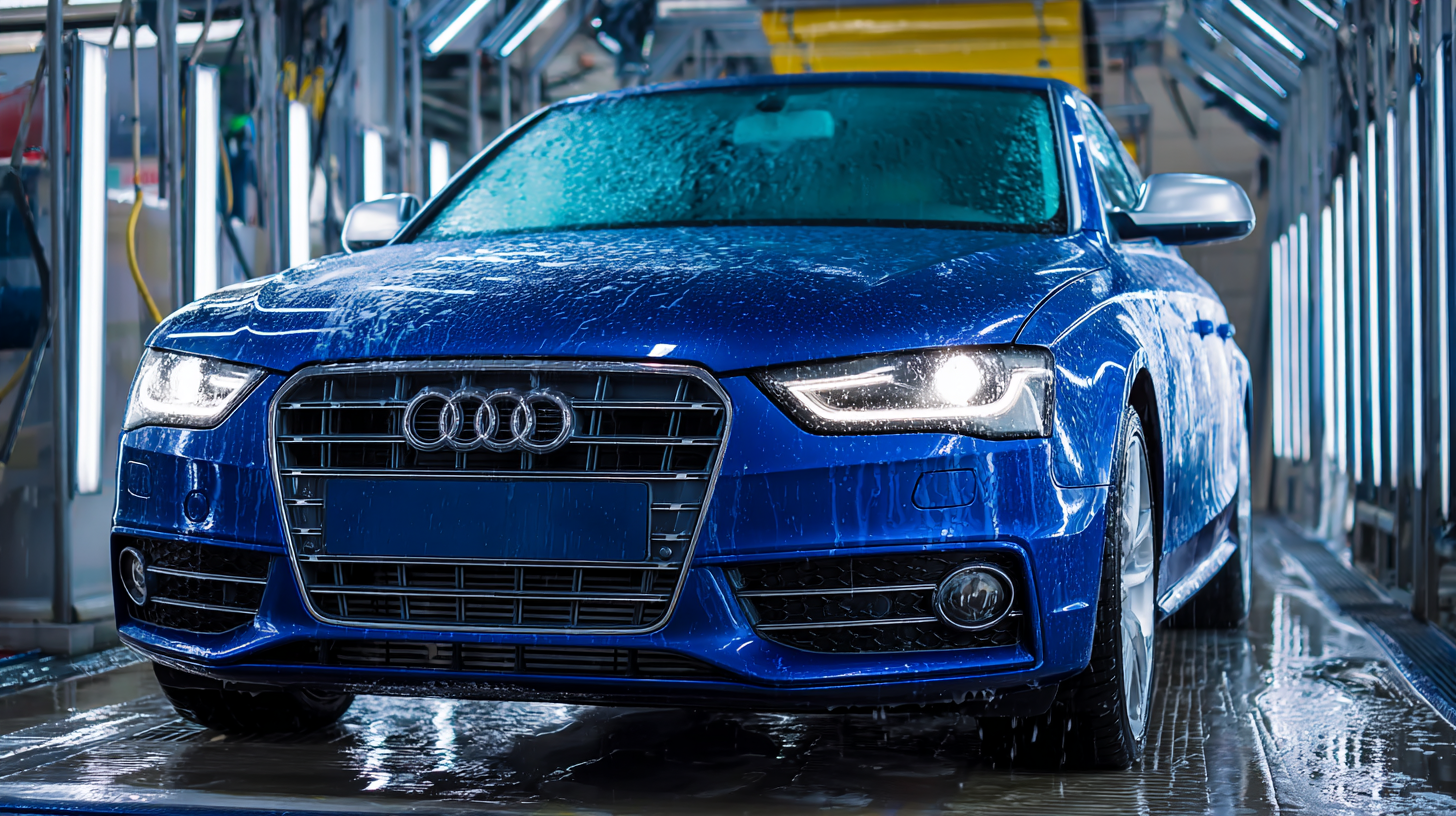2025 Top 10 Car Wash Machines You Need for a Sparkling Clean Vehicle
In the rapidly evolving automotive care industry, the demand for efficient and high-performance car wash machines has reached unprecedented heights. According to a recent report by Market Research Future, the global car wash market is projected to grow at a CAGR of 4.5% between 2021 and 2028, primarily driven by the increasing number of vehicles on the road and rising consumer awareness regarding vehicle maintenance. This growth highlights the necessity for advanced Car Wash Machines that can deliver impeccable results while embracing eco-friendly practices.
Renowned industry expert, Dr. Emily Stone, emphasizes the importance of investing in the right technology, stating, "The efficiency of a Car Wash Machine not only enhances customer satisfaction but also significantly reduces water and energy consumption, making it a win-win for both business owners and the environment." As we approach 2025, it becomes crucial for car wash business operators to stay ahead of the curve by adopting machines that incorporate cutting-edge technology, ensuring they meet the growing expectations of customers who demand a sparkling clean vehicle.
In this comprehensive guide, we will explore the top 10 Car Wash Machines that are poised to dominate the market in 2025, featuring innovative features and sustainable designs that cater to both the operator's needs and the environment, setting the standard for exceptional vehicle cleanliness.

Top Features to Look for in 2025 Car Wash Machines
When selecting car wash machines in 2025, several key features are essential to ensure a sparkling clean vehicle. One of the most crucial attributes is efficient water usage. Modern machines are designed to minimize water consumption while maximizing cleaning power, helping to conserve this vital resource. Look for models that incorporate advanced rinsing technologies, which use high-pressure jets or foam applications to remove dirt and grime effectively without wasting water.

Another important feature to consider is the integration of smart technology. Many contemporary car wash systems now come equipped with sensors and AI capabilities that analyze vehicle surfaces and adjust the washing process accordingly. This ensures that delicate areas receive appropriate care, while tougher spots are treated more aggressively. Additionally, the option for customizable wash settings allows customers to choose the level of cleaning based on their vehicle's needs, enhancing both efficiency and satisfaction. In this era of innovation, investing in a car wash machine that embodies these features will undoubtedly elevate the washing experience.
Comparative Analysis of the Top 5 Car Wash Machines for 2025
As we approach 2025, choosing the right car wash machine can make a significant difference in maintaining the appearance and longevity of your vehicle. In our comparative analysis of the top five car wash machines for the year, we delve into performance, efficiency, and user-friendliness.
Each machine brings unique features to the table, catering to different needs—from compact designs suitable for small spaces to larger systems capable of handling heavy-duty tasks.
The first contender boasts advanced foam technology that ensures a thorough clean while being gentle on paint finishes. In contrast, another machine emphasizes energy efficiency, using innovative water recycling systems to reduce environmental impact. Features such as programmable wash cycles and compatibility with biodegradable soaps are also key differentiators that we explore. Ultimately, these comparisons will guide consumers in selecting a car wash machine that not only meets their cleaning needs but also aligns with their values for sustainability and effectiveness.
User-Friendly Innovations in Car Wash Technology
The car wash industry has witnessed a significant transformation with user-friendly innovations in technology, making the washing experience more efficient and enjoyable for vehicle owners. According to a report by IBISWorld, the car wash services market in the United States is expected to reach $15 billion by 2025, highlighting the growing demand for effective washing solutions. One notable advancement is the introduction of touchless car wash systems, which utilize high-pressure water jets and specialized cleaning agents to remove dirt without the risk of scratching the vehicle's surface. This technology not only enhances the quality of the wash but also appeals to eco-conscious consumers by reducing water usage by up to 50%.
In addition to touchless systems, automated conveyor washes are integrating smart technology, allowing for a seamless user experience. Innovations such as mobile apps for booking and payment, as reported by Mordor Intelligence, have increased customer engagement and retention. With an estimated 25% of consumers preferring to pay via mobile platforms, businesses that embrace these technologies are likely to see a boost in customer satisfaction and loyalty. As we move toward 2025, the car wash industry is set to become more accessible and efficient, ensuring that every vehicle receives a sparkling clean finish with minimal hassle.
Cost-Effectiveness of Different Car Wash Machines for Home Use
When considering the cost-effectiveness of car wash machines for home use, it's essential to evaluate both initial investment and long-term savings. Various models range from simple handheld devices to more elaborate automatic systems. Basic wash guns and pressure washers often come with a lower price tag and are effective for occasional use, making them suitable for budget-conscious consumers. However, they may require more manual effort and time, and might not provide the same level of cleanliness as more advanced machines.
On the other hand, investing in a high-quality automatic car wash machine can initially seem expensive, but it often pays off in terms of convenience and thoroughness. These machines typically incorporate advanced technologies that can adapt to different surfaces and types of dirt, providing consistent results with minimal effort. Additionally, many automatic car wash machines come with built-in water recycling systems, reducing utility costs over time. Ultimately, choosing the right car wash machine hinges on individual needs, frequency of use, and willingness to invest in durability and efficiency for a sparkling clean vehicle.
Eco-Friendly Options for the Environmentally Conscious Car Owner
As environmental concerns grow, car owners are increasingly seeking eco-friendly alternatives in car care. The rise of sustainable practices in the automotive sector is a testament to this shift. According to recent data, the global market for eco-friendly car care products is projected to reach $15 billion by 2025, reflecting a growing consumer preference for green solutions. This includes innovative detailing services that utilize biodegradable products and waterless washing techniques, significantly reducing water consumption and minimizing toxic runoff.
 In urban areas, eco-conscious car owners are not just relying on traditional car washing methods but are turning to mobile detailing services that prioritize environmental sustainability. For instance, some new eco-friendly cleaning solutions on the market enable vehicle owners to wash their cars without using large quantities of water, addressing the pressing issue of water scarcity. These advancements not only contribute to a cleaner vehicle but also promote a healthier planet, reinforcing the idea that caring for one’s vehicle can coexist with caring for the environment. As more cities recognize the importance of sustainable practices, initiatives promoting eco-friendly vehicle ownership are becoming essential for the future of urban mobility.
In urban areas, eco-conscious car owners are not just relying on traditional car washing methods but are turning to mobile detailing services that prioritize environmental sustainability. For instance, some new eco-friendly cleaning solutions on the market enable vehicle owners to wash their cars without using large quantities of water, addressing the pressing issue of water scarcity. These advancements not only contribute to a cleaner vehicle but also promote a healthier planet, reinforcing the idea that caring for one’s vehicle can coexist with caring for the environment. As more cities recognize the importance of sustainable practices, initiatives promoting eco-friendly vehicle ownership are becoming essential for the future of urban mobility.
Related Posts
-

How to Choose the Best Automatic Car Washing Machine for Your Business
-

Revolutionizing Vehicle Care: The Ultimate Guide to Auto Car Wash Machines for Effortless Cleaning
-

10 Reasons Why Best Machine Car Wash is the Ultimate Choice for Your Vehicle
-

Solutions for Transforming Car Care with the Best Automatic Car Washing Machine
-

7 Compelling Reasons Automated Car Wash Solutions Are Revolutionizing Car Care Worldwide
-

Advantages of Using Automatic Car Wash Parts for Enhanced Efficiency